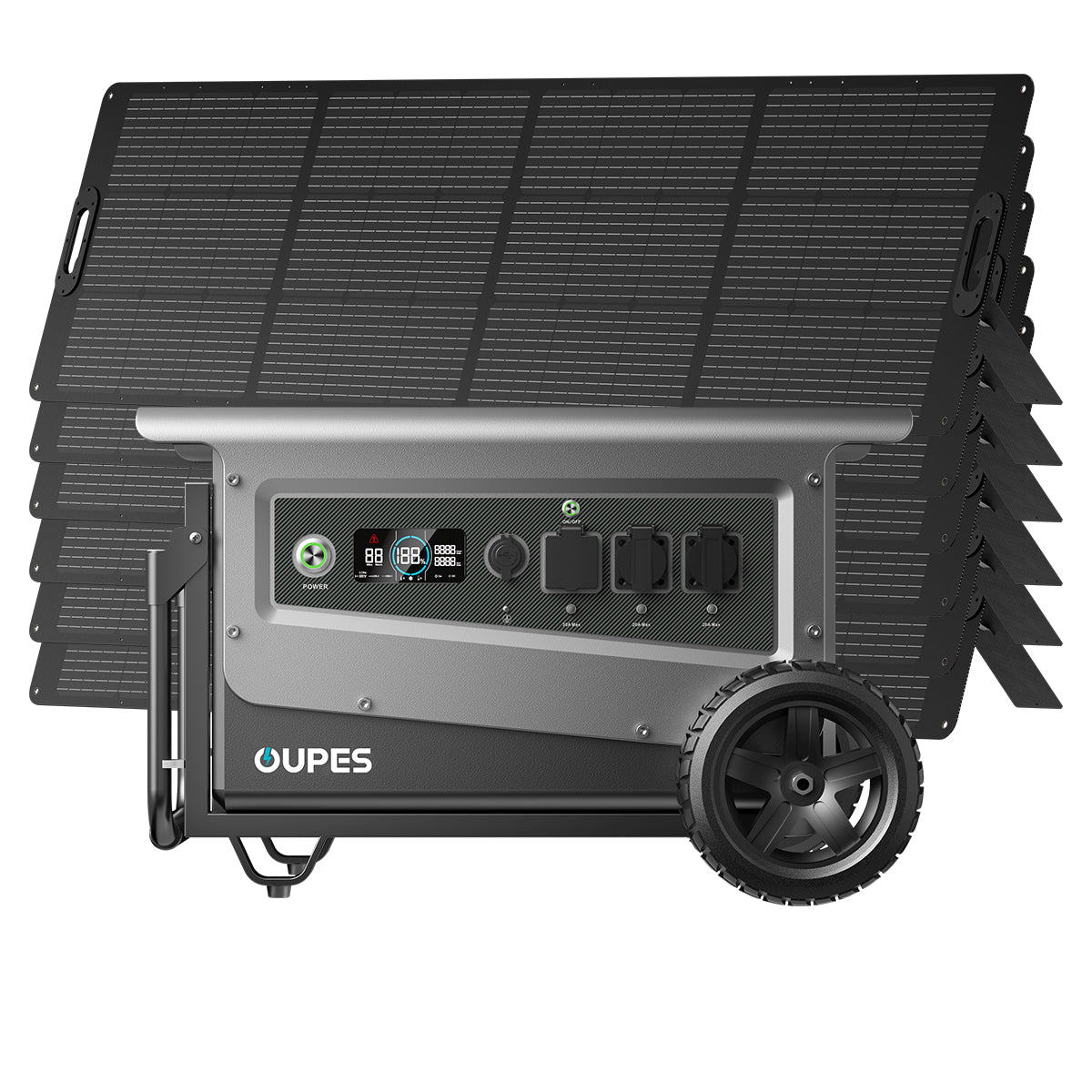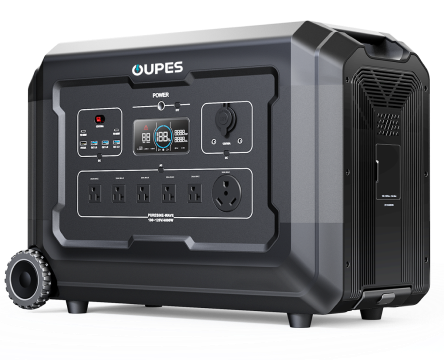
Whether you're preparing for a power outage, planning off-grid living, or just want the peace of mind that comes with backup energy, knowing how many watts you need to run a refrigerator is essential. Refrigerators are among the most critical appliances in any home—they preserve food, medicine, and comfort. But how much power do they actually need, and how do you choose a generator that meets those needs efficiently? In this article, we break down the technical and practical aspects of powering a refrigerator with a generator so you can make a confident decision.
Understanding Refrigerator Power Requirements
Before selecting a generator, it's crucial to understand how much power your refrigerator actually consumes. Most refrigerators have two different wattage figures: running watts and starting (or surge) watts. Running watts refer to the continuous power the fridge needs to operate, while starting watts represent the brief but significant spike in power needed when the compressor kicks on.
For example, a typical modern refrigerator might use around 100 to 800 running watts. However, the starting wattage could be as high as 1200 to 2000 watts for a few seconds. The specific numbers depend on the model, age, and energy efficiency rating of the appliance. Older units tend to consume more electricity than newer, ENERGY STAR-certified models.
To find the exact wattage of your refrigerator, check the manufacturer's label inside the unit or refer to the user manual. You can also use a watt-meter or plug-in energy monitor to measure its actual power usage. Once you know both the running and starting wattages, you'll have a much clearer idea of the generator capacity you'll need.
Keep in mind that if you plan to run additional appliances along with the refrigerator—like lights, fans, or a microwave—you'll need to calculate the total combined wattage. Always choose a generator that can handle the peak load to avoid overload or system shutdowns.
How to Calculate the Right Generator Size
Choosing the correct generator size involves a simple calculation, but it requires knowing the wattage of the appliance you're running. If your refrigerator uses 700 running watts and has a surge wattage of 1400 watts, your generator must support at least 1400 watts of startup power and 700 watts of continuous operation.
Most generator labels highlight both “running watts” and “starting watts.” It’s important to match both ratings to your needs. A generator rated for 1000 running watts and 2000 starting watts would be suitable for a standard energy-efficient refrigerator. However, if you're running a larger fridge or multiple appliances, you’ll need a more robust generator.
Here’s a quick formula you can use:
Total Starting Watts = Highest Appliance Starting Watts + Sum of Other Appliances' Running Watts
For example, if your refrigerator has a starting wattage of 1400W, and you want to run a few lights (200W total) and a fan (100W), your generator should provide:
Total = 1400 (refrigerator surge) + 200 + 100 = 1700 watts
To be safe, choose a generator rated at least 1800–2000 watts. Always round up rather than down to ensure you don’t risk overloading your generator. And if you want some buffer room for future appliances or less efficient equipment, going for a 2500-watt generator might be a better long-term solution.
Types of Generators and Their Suitability
Once you know how many watts your refrigerator requires, you need to decide on the type of generator. There are several types to consider: portable gasoline generators, inverter generators, and solar generators. Each type has its advantages and limitations when it comes to running a refrigerator.
Portable Gasoline Generators: These are the most common and budget-friendly options. They’re capable of delivering high wattages and are perfect for short-term backup power. However, they are noisy, emit fumes, and require fuel storage. A 2000-watt portable gas generator can easily run a standard fridge and a few lights, making it a popular choice for emergency use.
Inverter Generators: Inverter models are more energy-efficient, quieter, and safer for sensitive electronics. They automatically adjust the engine speed based on the load, which saves fuel and reduces noise. A 2200-watt inverter generator, such as the popular Honda or Yamaha models, is ideal for running a fridge and some additional devices simultaneously. They're also more compact and suitable for RVs and small homes.
Solar Generators: If you prefer a cleaner and quieter solution, solar generators are a great eco-friendly alternative. These systems consist of a battery pack, solar panels, and an inverter. A high-capacity solar generator (such as a 2000-watt model with a 2000Wh battery) can run a fridge, but run time will depend heavily on the battery size and how much sunlight is available to recharge it. They're ideal for long-term sustainability, though initial investment costs may be higher.
Ultimately, the best type of generator depends on your budget, usage frequency, and personal preferences. For occasional backup use, gas or inverter generators are efficient. For off-grid living or green energy setups, solar generators offer silent and emission-free operation.
Real-World Examples and Use Cases
Let’s explore some real-life scenarios to better understand what size generator is appropriate for different fridge types and use situations. This can help visualize how your needs might align with a particular generator model.
Scenario 1: Home Refrigerator During a Blackout
Consider a family with a standard 18-cubic-foot ENERGY STAR-rated refrigerator that runs at 150 watts and surges to 1000 watts. They also want to power some LED lights and charge phones. A 2000-watt generator would easily cover this setup, even with brief usage of a microwave or coffee maker.
Scenario 2: RV Mini Fridge
An RV owner with a small DC-powered mini fridge consuming 60 watts could use a solar generator with a 500Wh battery for about 8 hours. A 1000-watt inverter generator would offer multiple days of usage if the fridge runs intermittently.
Scenario 3: Off-Grid Cabin with Chest Freezer
A remote cabin uses a chest freezer rated at 300 running watts and 900 surge watts. Along with lights, a TV, and a small water pump, total usage peaks at around 1500 watts. A 2200-watt inverter generator or a 2400Wh solar generator would provide stable power for extended stays, especially with solar panel support.
These examples illustrate that knowing your refrigerator’s specific energy needs, and considering all devices in use, helps you select the most reliable generator without overspending on excess power you don’t need.
Final Considerations for Safe and Efficient Usage
Even with the right generator size, how you use it matters significantly. Here are some best practices to ensure safety, efficiency, and longevity of both your generator and refrigerator:
1. Prioritize Essential Appliances: During power outages, focus on running only the most crucial items to avoid overloading your generator. Avoid using high-wattage appliances like hair dryers or space heaters simultaneously with your refrigerator.
2. Use Extension Cords Safely: Always use heavy-duty extension cords rated for outdoor use and capable of handling the wattage load. Undersized cords can overheat and become fire hazards.
3. Store Fuel Properly: If using a gas generator, store fuel in a safe, ventilated area and never refuel a hot engine. For solar systems, ensure your panels are clean and positioned to get optimal sunlight.
4. Monitor Run Time and Load: Many generators come with displays showing wattage usage. Monitor this to avoid overloads, and regularly check battery levels in solar setups.
5. Perform Maintenance: Clean air filters, check oil levels, and run your generator periodically to keep it in good working condition. This ensures reliability during emergencies.
Proper planning and maintenance will allow your generator to perform optimally when you need it most, whether for home use, RV travel, or emergency preparedness.
Conclusion
Knowing how many watts are required to run your refrigerator is the first step toward choosing the perfect generator. With accurate wattage data and an understanding of your overall power needs, you can confidently select a generator that ensures uninterrupted cold storage, whether you're at home, on the road, or off the grid.
From small inverter generators to high-capacity solar units, there’s a solution for every situation. The key is to match the generator’s running and surge capacities with your appliance’s requirements while allowing room for additional usage. With the right setup, you’ll be well-equipped for anything—from routine camping trips to unexpected power outages.




























